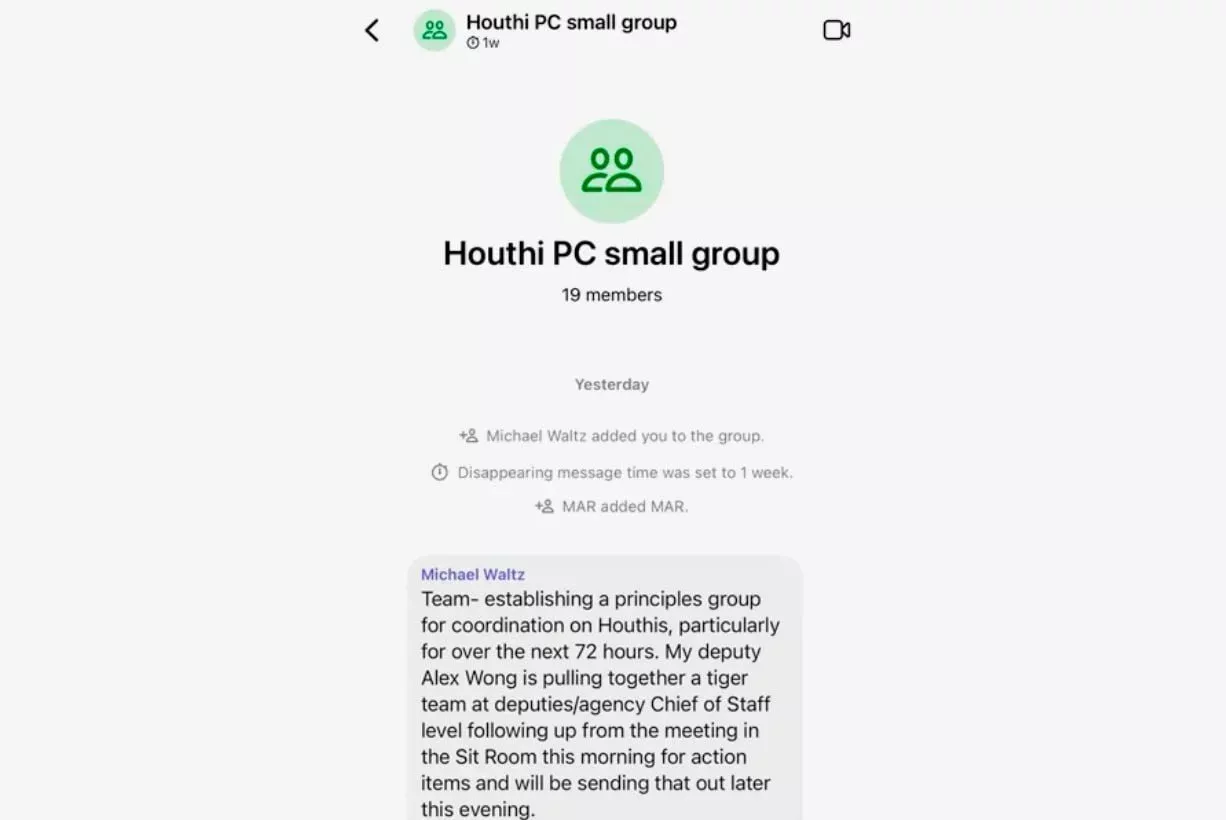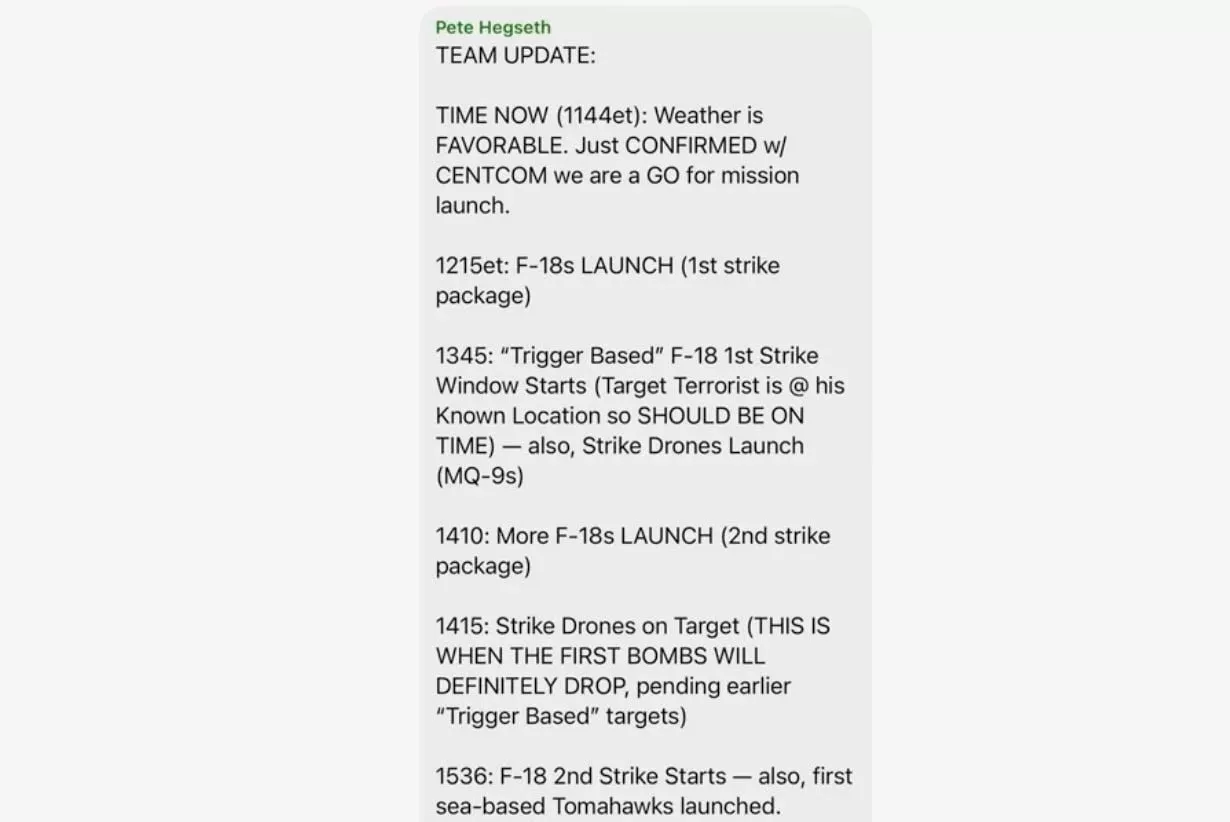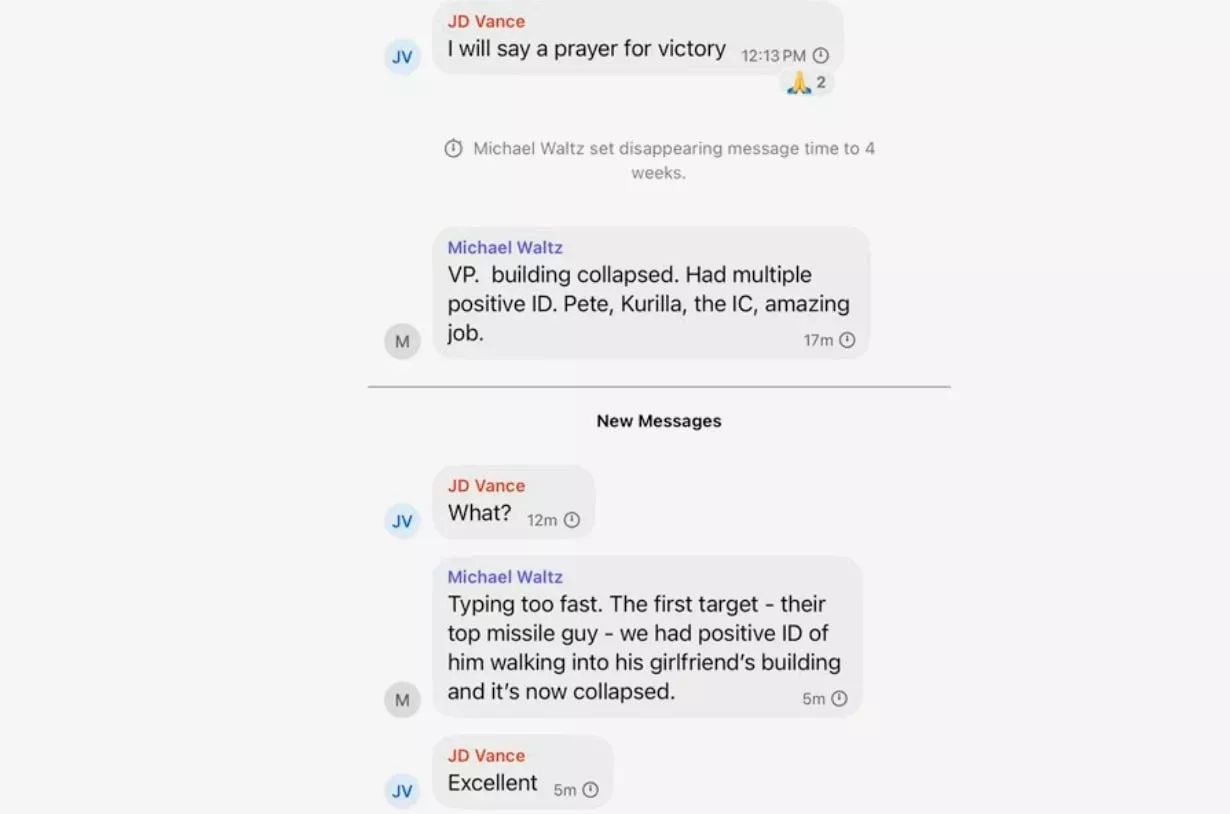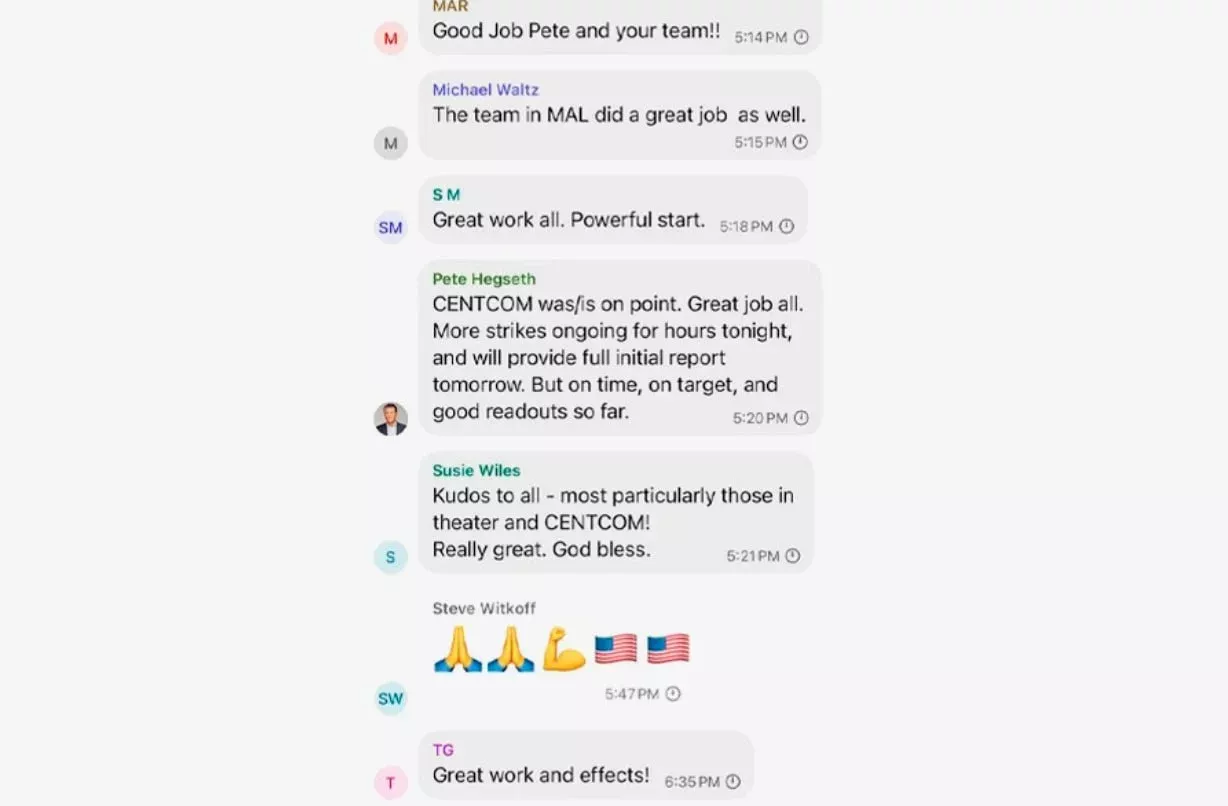
New screenshots have been released showing that senior officials in the US government discussed the attacks on Houthis in Yemen on the Signal messenger before the strikes were carried out. The Atlantic's editor-in-chief Jeffrey Goldberg accidentally joined this chat.
According to the newly released screenshots, Pentagon chief Pat Hegseth reported that American F-18 fighter jets took off 31 minutes before the mission began and two hours before the planned target was eliminated.
Later, national security advisor Mike Walls provided detailed information about the results of the attack in the chat. "The first target — their chief missile expert — we identified that he entered the building where his girlfriend lives, and it collapsed," the screenshot states.

Photo: The Atlantic

Photo: The Atlantic

Photo: The Atlantic

Photo: The Atlantic
In turn, Hegseth sent a message stating: "Great job, that's it. There will be a few more strikes tonight, a full report will be available tomorrow. So far, everything is going according to plan, precise strikes are being made on the targets, and everything is good for now."
The Atlantic notes that the reason why Goldberg accidentally joined this chat remains unknown.
Goldberg revealed on March 24 that he had accidentally joined a chat discussing US plans for operations against the Houthis. There were 18 people in the chat, including Walls, Hegseth, Secretary of State Marco Rubio, Vice President Jay DeVens, and other representatives of the White House. The Pentagon chief denied that military plans were sent through this chat. The national security advisor took responsibility for the incident but emphasized that he did not recognize Goldberg and did not have his number. US President Donald Trump stated that Walls had drawn conclusions from this.
According to The Guardian, national security and intelligence analysts and experts in the US are seriously criticizing the discussion of such classified military plans in commercial chats. In their view, this represents an unprecedented breach of operational security. Discussing military operations via Signal may also violate the Espionage Act and the protocols for maintaining state documents, as officials were required to communicate only through secured, designated state channels.
In turn, Democrats in Congress proposed to impose criminal liability for transmitting classified information via messengers due to the access provided to high-ranking officials discussing the strikes on Yemen in the chat with the editor-in-chief of The Atlantic.